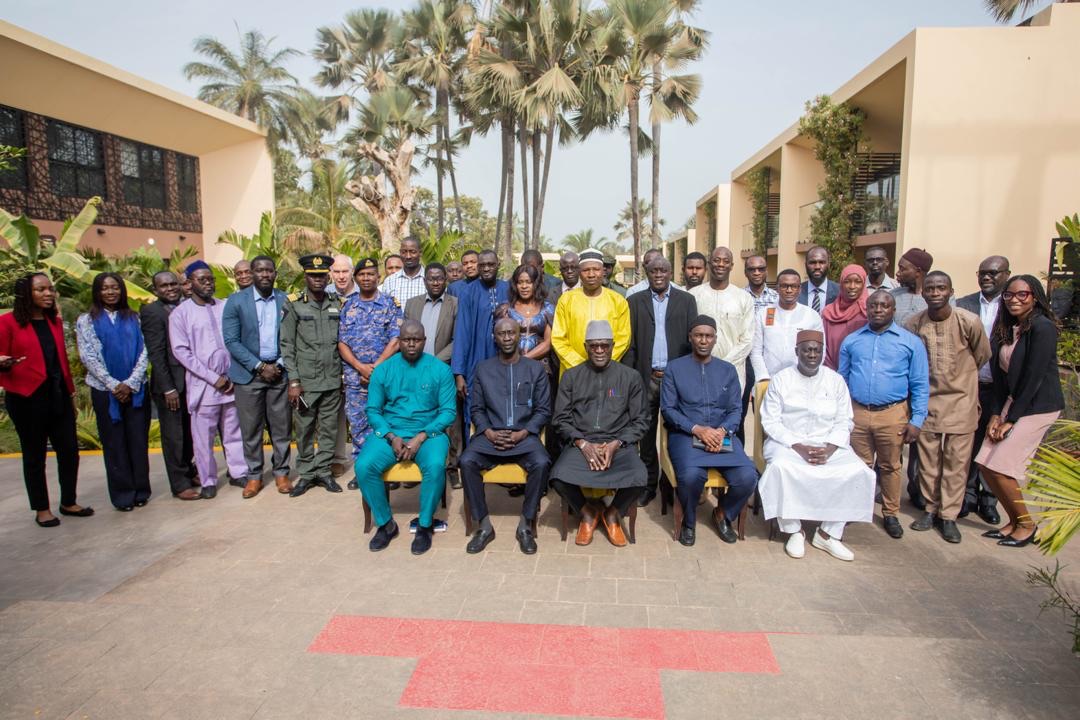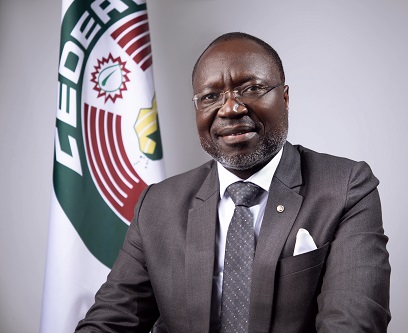By Yunus S Saliu
The Office of the President and Ministry of Public Service, Administrative Reforms, Policy Coordination and Delivery on Thursday, 25 January 2024, concluded a three-day validation workshop on the Gambia trade logistics diagnostic study.
The validation workshop, held at the Bakadaji Hotel in Kotu, was conducted for private and public sector stakeholders and it was attended by high-ranking government officials, leaders from private sector trade and logistics companies along with industry experts and consultants.
The workshop was also attended by senior officials, including the Minister of Public Service, the Chief of Staff, the Commissioner General of GRA, and the Managing Director of the GPA.
The convergence provided an opportunity for the participants to scrutinize and discuss the findings of a comprehensive study conducted at the Port of Banjul and along the major trade corridors in partnership with the Tony Blair Institute for Global Change (TBI). The study covered marine operations, customs, and port terminal operations as well as logistics and transportation.
The result of the study, as disclosed at the workshop, provided insights into the challenges and opportunities within the Gambia’s port infrastructure and trade corridors and seeks to inform a trade and logistics charter that will bind several reform programs being spearheaded by various players within the port community.
The Minister of Public Service, Administrative Reforms, Policy Coordination, and Delivery, Baboucarr Bouy in his address to participants, underscored the need for the study and recognized the innovations launched by the Port Authority and the Gambia Revenue Authority, and thanked the TBI for its partnership in conducting the study.
The Minister also advised the stakeholders to engage thoroughly with the report and work together to shape the trading charter to serve as a performance benchmark for efficient operations at the port.
On behalf of the Minister of Trade, Regional Integration and Employment, Permanent Secretary Mr. Lamin Dampha noted that it was emphasized that the commissioning of the Trade Logistics Diagnostic Study was timely.
“This is because it establishes the basis for developing a strategic approach not only for implementing the TFA agreement but also to position The Gambia to regain the lost glory of competitiveness in transit and re-export trade,” said Mr. Dampha.
He, therefore, encouraged the private sector to not only focus on reviewing the issues but also add value to the set of recommendations made in the report.
Mr. Mod K. Ceesay, the Chief of Staff at the Office of the President said it’s important to invest in the Port of Banjul and its custom processes to make it competitive as he stressed the importance of the validation processes and challenged participants to be diligent in making sure that they draft a smart document to transform the Gambia’s trade and logistics services.

For his part, the Commissioner General of the GRA, Mr. Yankuba Darboe, said the findings of the study present a picture of where they stand and the vast potential for improvement, noting that some of the current innovations by the authority such as the introduction of the “single window system and the electronic cargo tracking system are in line with the recommendations of the study.”
Mr. Ousman Jobarteh, Managing Director of the Gambia Port Authority highlighted the strides being made in the adoption of IT systems at the Port of Banjul such as the recently implemented E-Tally and E-Delivery Order systems that enhance data collection. The streamlining of these IT systems in port processes, he acknowledged, marked the beginning of a wider digitization effort at the port.
He noted that the Port of Banjul is the sole maritime gateway for The Gambia.
“Apart from imports for domestic consumption that constitute about 80% of the cargo, the Port handles transit cargo for adjoining countries that include Senegal, Guinea-Bissau, Guinea, and Mali,” he highlighted.
The Trade Logistics Diagnostic Study was crafted to evaluate the efficiency and effectiveness of current marine, customs, port terminal, and logistics processes, procedures, and systems in the country, assess the state and sufficiency of trade logistics equipment and infrastructure, and gauge the extent of the utilization of digital platforms in the country’s trade logistics industry.
Earlier, Mr. Alieu Senghore, the Country Director of TBI Gambia dilated on the crucial role that trade plays in shaping the economic fortunes of The Gambia. He, therefore, thanked all stakeholders for their participation in the study and for complementing the development of a Trade and Logistics Charter that reflects the ambitions to establish The Gambia as a key trade hub for the region.





